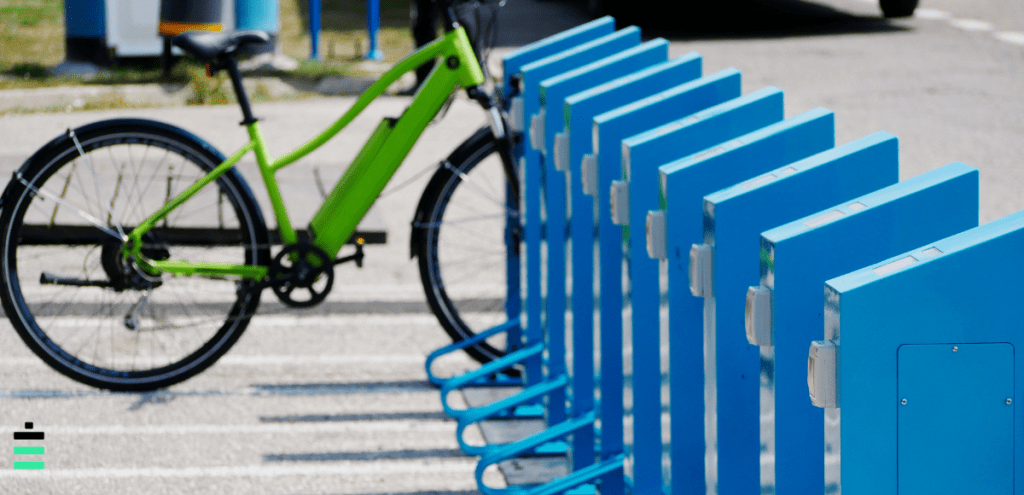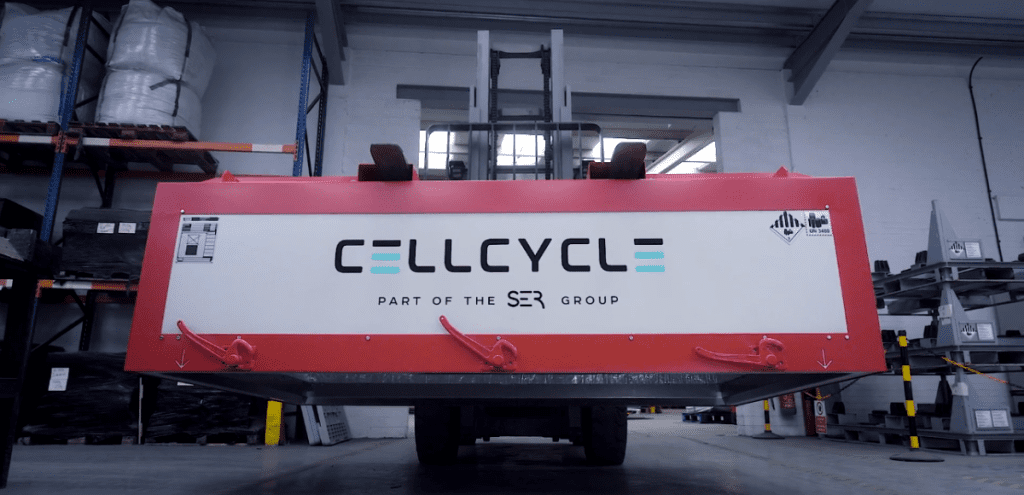In recent years, e-bikes have grown immensely popular as a sustainable mode of transport, especially in our cities. With the increase in urban commuting and a global shift toward greener options, e-bikes are quickly becoming a staple in many people’s daily lives. As the e-bike market expands, we at Cellcycle recognise the need to address the environmental impact of e-bike batteries, particularly when it comes to their disposal and recycling.
According to Statista, the global e-bike market is projected to grow from roughly £22 billion in 2021 to over £55 billion by 2028, largely driven by the rising demand for eco-friendly, convenient transport. With more people using e-bikes for commuting and leisure, the volume of lithium-ion batteries needed to power them continues to increase. This growth underlines the urgent need for effective recycling of e-bike batteries to prevent both environmental and safety hazards linked to improper disposal.
Why E-Bike Battery Recycling is So Important
As e-bikes become more common, the demand for efficient battery recycling has never been more vital. Most e-bikes are powered by lithium-ion batteries, known for their high energy density and long lifespan. However, like all batteries, they inevitably degrade and eventually reach the end of their useful life. If not disposed of correctly, these batteries can create serious environmental and safety risks, such as hazardous waste build-up and fire hazards.
Lithium-ion batteries contain valuable but limited materials, including lithium, cobalt, and nickel. Improper disposal means these materials could leach into soil and groundwater, potentially causing significant environmental damage. Moreover, these batteries pose a combustion risk if mishandled or damaged. As the number of e-bikes on our roads grows, so does the quantity of batteries requiring responsible disposal. Addressing this challenge is crucial to ensuring safety and conserving essential resources.
E-Bike Batteries: The Fire Hazard We Must Tackle
Improper disposal of e-bike batteries not only affects our environment but also poses serious safety risks. Lithium-ion batteries are particularly volatile due to the risk of ‘thermal runaway’ – a reaction in which a battery’s temperature rises rapidly, potentially leading to fires or explosions. This risk increases when batteries are damaged or exposed to extreme conditions, highlighting the importance of safe handling and recycling.
Here in the UK, BBC News has reported a concerning rise in fires linked to faulty or mishandled lithium-ion batteries, especially in e-bikes and e-scooters. Between 2020 and 2022, there was a noticeable surge in fires involving e-bike batteries, some of which resulted in property damage and injuries. This increase underscores the urgent need for responsible disposal and recycling practices to prevent similar incidents. With more e-bikes on our roads, the likelihood of such fires will only grow unless we put the right recycling infrastructure in place.
Cellcycle: Leading the Way in E-Bike Battery Recycling
As the e-bike market expands, the need for responsible recycling solutions is only increasing. At Cellcycle, we are committed to addressing this need head-on. As a leading player in the UK’s lithium battery recycling sector, we specialise in recycling batteries from e-mobility devices, including e-bikes, aiming to ‘close the loop’ by recovering valuable materials and minimising environmental risks.
One of our key strengths is our capability to reclaim the valuable metals within lithium-ion batteries, such as lithium and cobalt. By reintroducing these materials into the battery manufacturing supply chain, we help reduce the demand for newly mined resources and support broader sustainability goals. Our circular approach to recycling is not only crucial for reducing the environmental impact of battery disposal but also promotes responsible resource use.
How We’re Closing the Recycling Loop
At Cellcycle, we’re committed to helping the UK achieve its sustainability goals by providing a comprehensive, end-to-end solution for e-bike lithium battery recycling. From collection to processing and material recovery, we ensure every step of the recycling process meets the highest standards of safety and environmental care.
We’re building partnerships with key industry stakeholders to create a streamlined recycling infrastructure that encourages the responsible disposal of batteries. This collaboration makes it easier for businesses and consumers to participate in a sustainable recycling ecosystem.
Our advanced recycling methods neutralise hazardous components in e-bike batteries while recovering valuable materials for reuse. This approach not only mitigates potential fire risks but also reduces the demand for environmentally harmful mining activities. By focusing on large-scale battery recycling, we’re helping to create a safer, more sustainable future for the UK’s growing e-mobility sector.
Looking Ahead: The Future of E-Bike Lithium Battery Recycling
The importance of recycling e-bike batteries cannot be overstated. As the market for e-bikes continues to expand, the number of batteries reaching the end of their lifecycle will only grow. The environmental and safety risks associated with improper disposal are significant, making it essential to implement recycling solutions on a larger scale.
Fortunately, with initiatives like ours, the future of e-bike battery recycling looks promising. Stricter regulations on battery disposal, alongside a growing awareness of recycling’s importance, are expected to drive significant improvements in the recycling infrastructure over the coming years. Through our commitment to effective and sustainable recycling solutions, we’re helping to ensure that the growth of e-mobility goes hand-in-hand with responsible battery disposal practices.
In Summary
The rise of e-bikes as a sustainable transport option is a positive step towards reducing carbon emissions and promoting greener urban mobility. However, the disposal of e-bike batteries remains a critical challenge that must be addressed to prevent both environmental harm and safety hazards. At Cellcycle, we’re at the forefront of tackling this issue by offering essential e-bike lithium battery recycling services. Through our efforts to recover valuable materials and reduce environmental risks, we are playing a vital role in closing the battery recycling loop and helping the UK transition to a more sustainable future.


